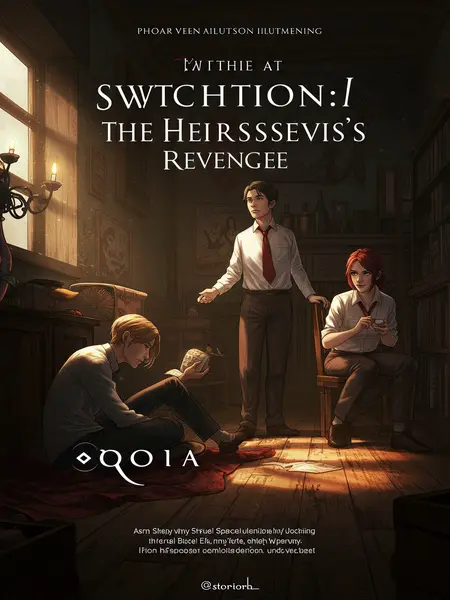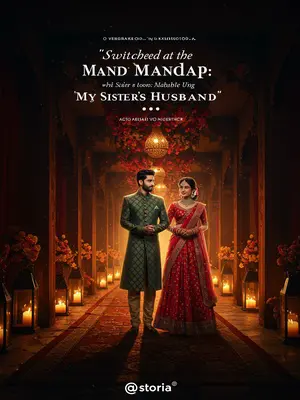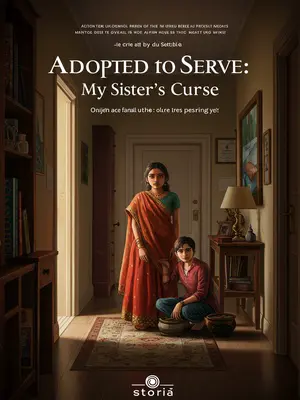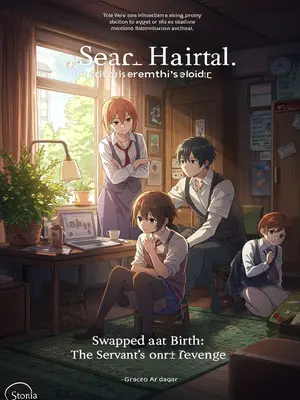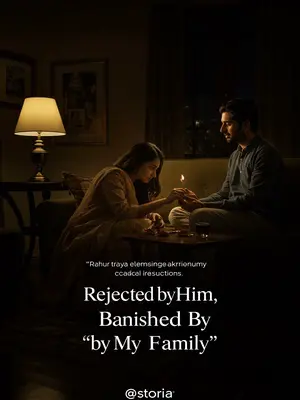Chapter 3: The Other Side of the Serial
In our previous life, my sister did everything she could to be adopted first by the Kapoor family, becoming Neha Kapoor.
She’d rehearsed her lines in the mirror, practised her smile, made sure her plaits were perfect—her whole life had been building up to this performance.
She thought she was about to live like a little princess.
She imagined silver-plated plates, a room of her own, and birthday parties with magicians and chocolate fountains. Neighbours would whisper, ‘Neha Kapoor, na? Lucky child.’
Not to mention, she would have Arjun Kapoor—the Prince of Mumbai—as her older brother.
It was every orphan’s fantasy: a ready-made family with a big brother who’d shield you from the world.
You know, the pairing of a rich young master and an adopted daughter is the most common trope in Indian serials. Living under the same roof, feelings are bound to develop.
Even the neighbourhood aunties, glued to their TV sets after dinner, would sigh, ‘Kya romance hai! Kaash humari bitiya ko bhi aisa kismet mile…’
But Neha never expected that Arjun Kapoor not only lacked any brotherly affection, he actually despised her from the bottom of his heart.
His glare would send a shiver down anyone’s spine, his words sharp as broken glass.
‘The person I hate most is someone who’s greedy. Don’t think I can’t see through you—you’re just a manipulative type, only after our family’s money, aren’t you?’
At home, Arjun Kapoor bullied Neha.
He’d trip her near the puja room, hide her notebooks, snigger with his friends when she fumbled in English.
At school, he led his group to pick on her.
Even the chaiwala outside the gates heard their laughter, cruel and loud, as Neha tried to blend into the background.
Even if the Kapoor parents found out, they would only scold her lightly and indifferently.
‘Beta, don’t cry. Arjun is just joking. You must adjust a little—after all, you’re in a new family.’ Mrs. Kapoor would pat her head but look away quickly, more interested in her WhatsApp messages than Neha’s tears.
They never truly liked Neha. They only adopted her because a pandit told Mr. Kapoor that bringing a daughter into the family would bring him ten years of good luck.
That old pandit from Andheri, with his saffron tilak and cryptic warnings, had sealed her fate more than any affection ever could.
Between an adopted daughter and their own son, the Kapoor parents were naturally biased towards their child.
No matter what Neha did, Arjun’s mischief was always forgiven with a smile, while her smallest mistakes became grave sins.
While Arjun Kapoor bullied Neha, he was kind to me, the girl adopted by the Mehra family.
Sometimes he’d find me on the school grounds late at night, waiting for my father, and hand me a packet of Britannia Good Day biscuits. ‘Eat, yaar, don’t act like a martyr.’
He saw me earning scholarships, always ranking first, going to school by day and helping my mother clean at night. Clearly living a tough life, yet never complaining.
My hands smelled of Vim and Phenyl, but my marksheet always glowed with gold stars. The other students called me ‘Jhansi ki Rani’ behind my back.
‘Ananya Mehra, this girl is really interesting.’
His eyes would follow me from the back benches, as if he’d never seen anyone like me before.
Just like in a TV serial, the rebellious rich young master falls for the resilient, poor little white flower.
Our story could’ve aired any night at 9 pm on Star Plus, complete with swelling background music and slow-motion close-ups.
Later, when the Kapoor parents passed away and the inheritance was to be divided, Arjun Kapoor brought in a team of lawyers. Neha was tricked and left with nothing—not a single rupee from the inheritance.
She signed on the dotted line, not realising the documents weren’t for college admission but for her own disinheritance. The family’s lawyer smirked as she left, the sound of her slippers echoing in the empty hall.
A few months later, Arjun Kapoor married me.
The wedding was a glittering affair at the Taj, my saree weighing more than my heart ever did. The flashbulbs from Page 3 made my eyes water.
He even declared at the wedding: ‘Ananya Mehra, from now on, what’s mine is yours.’
I remember the heavy sindoor, the heat of the havan kund, his voice echoing over the conch shell’s blast.
Unfortunately, I didn’t get to enjoy Arjun Kapoor’s wealth either.
Because a few days later, Neha, driven mad by despair, ran me over with a car and killed me.
Her face behind the steering wheel—wild, desperate, mascara streaked—haunts my dreams even now.
In this life, my sister chose the Mehra family without hesitation.
This time, she didn’t even look at the Kapoors. ‘No more cold dinners and locked doors,’ she seemed to say with every step.
There was no great fortune, but also no scheming. She could enjoy her parents’ undivided love and grow up in a happy family.
Aunty Mehra’s embrace, the steam of morning chai, and the jingle of uncle’s cycle bell—small joys that can fill a life.
With this background, she would be pitied and protected by the young master of the wealthy family, and ultimately receive a fairytale wedding of the century.
All the colony aunties would say, ‘Dekho, Mehra ki beti, kya kismet payi hai!’
She smiled and said to me:
‘Didi, this time, it’s my turn to be the heroine of the serial.’
Her voice was half-triumph, half-pity. But I heard the warning hidden underneath.
‘You, too, should taste everything I once suffered.’
It was like she’d drawn a lakshman rekha between us, the weight of past lives lingering like the smell of rain on hot earth.
